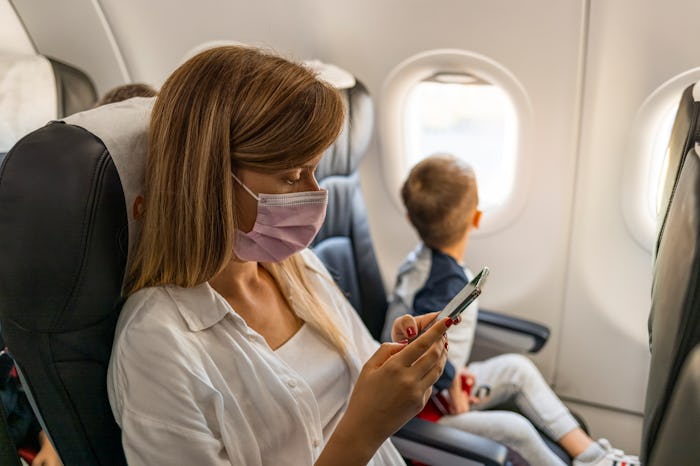News

Could Covid Booster Shots Be Required For Travel? Here’s What We Know Now
Many countries already require travelers to be fully vaccinated before they enter and could soon begin requiring Covid booster shots as well.
Thanks to Covid-19, travel is quite different. And with health and safety regulations seeming to change almost constantly, planning a trip can be more complicated than ever before. Already many countries require travelers to be fully vaccinated before they enter. Now, some are toying with the idea of putting expiration dates on travelers’ fully vaccinated status, leading to booster shots becoming a potential travel requirement.
The Changing Definition Of “Fully Vaccinated”
Currently, the U.S. Centers for Disease Control and Prevention (CDC) has said anyone 18 years of age or older who received Johnson & Johnson’s Janssen vaccine is eligible for a booster at least two months after their first shot. Individuals who received either the Pfizer-BioNTech vaccine or the Moderna vaccine are recommended to get a booster at least six months after receiving their second dose if they are 65 years of age or older, are 18 or older and living in a long-term care setting, have an underlying medical condition, or work or live in a high-risk setting. For now, however, the CDC still considers an individual to be fully vaccinated without a booster shot.
Other countries are considering amending their definition of the term “fully vaccinated” to include Covid-19 boosters. Earlier this week, The Guardian reported ministers for the United Kingdom were preparing to soon require anyone eligible for a booster to provide proof of having received one in any situation where they must prove themselves as being fully vaccinated, including travel. According to The Guardian, mandates requiring boosters could roll out across England in the spring.
“We will be making plans to add the booster dose to the NHS Covid Travel Pass,” Conde Nast Traveler reported UK Prime Minister Boris Johnson said at a press conference earlier this week. “What the general lesson is, if anybody wants to travel, you can see that getting vaccinated with a booster will make your life easier for foreign travel. If you’re thinking about that, this is yet another reason to get it done.”
Should, or rather when, England does change its definition of “fully vaccinated” to include three jabs, international travelers looking to visit the country will likely find they too need a booster shot to enter.
Some Countries Are Putting Expiration Dates On Proof Of Vaccination
International travelers may also find they need to get a Covid-19 booster shot simply because a number of countries are beginning to put expiration dates on the vaccine. Austria, Croatia, Switzerland, and Vietnam have already announced one-year expiration dates for Covid-19 vaccine cards or certificates, meaning any traveler who received their vaccine more than a year ago will need to re-up with a booster, Forbes has reported. In Israel, lawmakers have shortened the period of time the country’s Covid Green Pass, which is required for anyone looking to enter indoor venues, is considered valid. According to Forbes, the pass is now valid for just six months after the last dose of a two-dose vaccine was administered, effectively making boosters mandatory for anyone who wishes to dine in a restaurant, bar, or cafe.
What About Travel Within The United States?
While the CDC has urged domestic travelers to delay travel until they are fully vaccinated, U.S. airlines do not currently require passengers to show proof of vaccination when purchasing a ticket or boarding. That could change, however, if the federal government moved to make Covid-19 vaccines requirement for domestic flights.
Earlier this month, some three dozen lawmakers sent President Joe Biden a letter urging him to issue a requirement mandating passengers show proof of vaccination or a negative test in order to board domestic flights. “This is a necessary and long overdue step toward ensuring all Americans feel safe and confident while traveling and [toward reducing] the chances of yet another devastating winter surge [of Covid-19 cases],” the letter read. “It is in the best interest of our nation’s public health to adopt these vaccination requirements for U.S. air travel.”